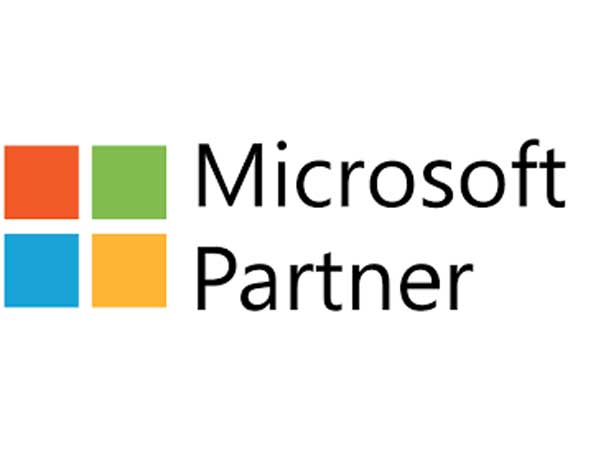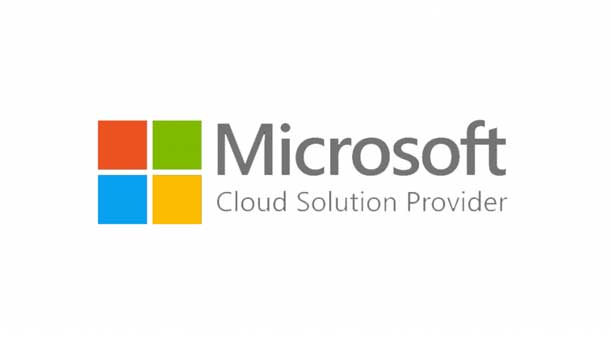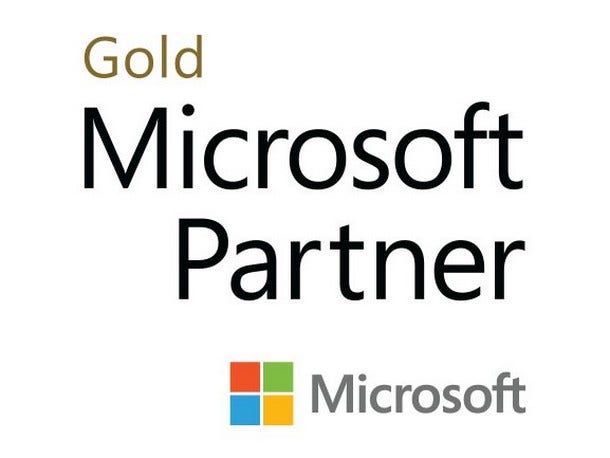Microsoft Partner Chief Talks AI, NCE, Security, New Designations
‘Our services-led partners are so core to our strategy,’ Microsoft Chief Partner Officer Nicole Dezen tells CRN.

Nicole Dezen, now 10 months into her new role as Microsoft’s chief partner officer, is “absolutely happy” with the progress partners have made around the controversial New Commerce Experience and new partner designations that have replaced longtime Gold and Silver badges.
She also hopes to see partners take advantage of Microsoft’s investments in artificial intelligence, in its commercial marketplace and new designations as partners navigate a tough economy with their customers.
Those are some of the highlights from an interview with CRN by Dezen, who also holds the role of corporate vice president of the Global Partner Solutions organization for Redmond, Wash.-based Microsoft.
“We’re on a multiyear journey,” she told CRN. “And when we launched Microsoft Cloud Partner Programs six months ago, we said this is a significant opportunity and change for partners. And we have a very rich road map ahead. So what partners will continue to hear from us is more innovation, more capability, more skilling, more resources to help them go to market with us.”
[RELATED: Microsoft Reveals More Partner Designations, AI Opportunity]
M icrosoft Chief Partner Officer Dezen Talks AI, Marketplace
Dezen spoke with CRN following Microsoft’s State Of The Partner Ecosystem Wednesday.
During this, Dezen said that the vendor is investing in more “partner growth and profitability.” For every $1 of Microsoft revenue, services-lead partners make $7.63 and software partners make $10.11, she said.
She also advocated for partners to explore co-selling opportunities with the vendor. In 2021, Microsoft co-selling partners achieved nearly double the revenue growth of partners that didn’t co-sell with Microsoft. Partners thatco-sell with Microsoft grow faster and generate higher margin, she said.
“Our services-led partners are so core to our strategy,” Dezen told CRN. “They are incredibly important. They can count on the fact that there are so many more opportunities coming ahead. … I’m so grateful for the unique work that they do every single day.”
Microsoft has about 400,000 channel partners worldwide, according to CRN’s 2023 Channel Chiefs list.
Here’s more of what Dezen said to CRN.

What are some important takeaways from Microsoft’s 2023 State Of The Partner Ecosystem?
The thing I really wanted people to take away from the event is the big investments that we have made and are continuing to make in the Microsoft Cloud Partner Program and certainly AI. … We launched the new cloud partner program six months ago.
And it’s really designed to simplify our partners’ ability to go to market with us, to help them differentiate themselves in the market.
And it brings everything for the partners under a single umbrella of the entire partner life cycle—everything from on-boarding, skilling, go-to-market and co-selling. And so it’s been really, really exciting not just to see the transformation, but also we have a very rich road map ahead. So I’m super excited about that.
The other big one … it’s incredible to see the series of announcements we’re making around AI. For me personally, I’m incredibly inspired and excited about the opportunities that this creates for our partners.
I will share with you that this is the No. 1 topic with partners right now. They’re excited. You can see the wheels turning. They’re quite motivated and inspired to bring this capability to our joint customers. … There’s so much goodness coming, too. … We talked about this as a new era. And it really does feel like a new era. It’s a fantastic time to be in this business.

How have you spent your first 10 months as chief partner officer?
It’s been an exciting whirlwind. I love the partner business, which is why I think I have the best job in the company. And one that was really tailor-made for me.
The thing that’s been amazing to me is to really get my head around the breadth of our partner ecosystem. Microsoft thinks about our partners really as four broad partner types—the SIs [systems integrators] and GSIs [global systems integrators, our ISV partners, our channel partners and our device partners.
I came into this role from the device partner business. They are an amazing group of partners. And it’s been really, really cool. And as a lifelong learner, it’s been exciting to get to learn about partners of all sizes, all around the globe, and as they think about the opportunity for us to work together to jointly solve customer problems. … I get a lot of energy from spending time with partners. I love, love, love those partner meetings.
It gives me a front-row seat to understanding how they think about their business. Because I think a big part of my responsibility is to help them grow successful businesses. … They also talk to customers all day, every day.
And so hearing their perspective on the voice of the customer is really helpful for me. And seeing the joy and enthusiasm as we are on this innovation drumbeat right now has been really, really motivating.

Is the business model for services-led partners very different from device partners?
From my point of view, they each have a very specific and important role to play.
In many customer opportunities, there are multiple partner types to deliver different parts of value for a customer’s digital transformation.
There are also a lot of common themes I hear from partners. Partners are curious about what more they can do to help customers.
I think the No. 1 thing that we can all do to help customers right now is help them realize value faster. And that’s where our partners come in. They are the magicians in this because of their capabilities. They deliver unique services, solutions, IP on our stack. And they are often in the trenches with the customer, really helping them realize that value.
Looking ahead, what’s on your to-do list as chief partner officer?
The to-do list is long. … One of the things I love is, it’s never the same day twice.
Every day, it’s a new opportunity to spend time with partners. … It’s core to my job to spend time with them, to learn from them, to find new ways to help them deliver value through our technology, our programs, our incentives, our tools.
I spend a lot of time with my team. My team, they’re the ones in it day in and day out with our partners, really bringing them through the journey.
And I spend quite a bit of time with my colleagues internally, helping them connect the dots, making sure that we’re really helping them capitalize on the value that partners deliver for Microsoft—whether that’s with our enterprise sellers, with our SMB sellers, with many internal stakeholders in marketing and etc..

Are Wednesday’s announcements indicative of what partners will continue to hear from Microsoft in 2023?
We’re on a multiyear journey. And when we launched Microsoft Cloud Partner Program six months ago, we said this is a significant opportunity and change for partners. And we have a very rich road map ahead.
So what partners will continue to hear from us is more innovation, more capability, more skilling, more resources to help them go to market with us.
How has the economy affected Microsoft partners?
It’s required us to think differently about how we help partners serve customers.
We’ve rolled out a series of offerings under the umbrella of ‘do more with less,’ which really resonates with partners and customers.
Customers in times like this are looking for trusted companies to lean on to help them achieve their business goals.
In fact, in some ways you can say their business goals become even more mission-critical in a climate like this.
And this is why I come back to the notion of helping customers realize value faster is really the job. We have great conversations with our partners about how to do that across all six of our solution areas. There are examples in every single one of them.

Has the economy affected customer investment in new technology?
Customers are most certainly investing in digital transformation because I think they see it as a path to … optimization, to synthesizing their investments, to leaning on a trusted partner to deliver the core capabilities they need.
Some of the places that we’re seeing very, very high demand for [include] security. Security should be top of mind for every single organization out there.
And Microsoft has such a rich offering of security capabilities. And this is the place where we continue to lean in even more with our partners to make sure that they can help protect customers. Because when customers’ environments are protected, then the customer can go on to do the jobs that they need to prioritize in servicing their own customers.
So it’s a bit of a flywheel. … We invite partners to come check out all of our security training, capability and readiness, achieve the specializations and solution designations within MCPP.
This is a solution area that customers need and customers want. And we love to help them go deliver that value to customers.

As Microsoft invests in more partner resources for ISVs, does this take resources away from services-led partners? Are the lines blurring among services-led partners and ISVs?
I think all of our partners should be excited about the continuous investments we’re making. … We had a lot of ISV announcements, which I’m super excited about.
And we have a really healthy road map ahead. We have a vision where all of our partner types will have more, more, more capabilities within MCPP. So there’s a lot more to come. … [As for the blurring partner definitions], there are quite a few partners that fit that description, which is really exciting for us.
We want partners to be able to take the journey that they need to take for their businesses and service to customers. That’s actually the beauty of the way that we structure our programs.
Any partner type can seek out the right solution designations, they can seek out training. It not only helps them serve customers really well, it also helps them with their own employees because they’re skilling their employees and helping them develop. … We should expect to continue to see partners find new ways to grow and evolve their business.
And I love it when they do that in close partnership with us, when they leverage all of our R&D investments, all of our innovation, our programs, our tools.
And it helps them to create healthy growing businesses. That’s a win. … It’s really, really inspiring and exciting to see companies that are coming to us saying, ’Microsoft, we see a way to do even more with you and to help your partners do even more with you.’ That’s an amazing win.

How are things going with partner adoption of the designations that replaced Gold and Silver? How about partner adoption of Microsoft’s NCE?
The message I would want partners to take away is we’re going to continue to do more.
We have big plans ahead. And we’re listening. … The [business] apps announcements we made … I think that’s a great example of helping partners really plug in with the specific things that they can do in business applications around finance, sales, service and supply chain.
And when partners get those specializations, they get to showcase that to customers. So when a customer says, ‘I really need a business applications finance expert in my partner, ‘they know exactly who to go to.
[For NCE], I am absolutely happy with the progress. We’re seeing really nice momentum there. Partners are on the journey with us.
And this is another place where we listen, we take feedback, we evolve. We’re addressing market needs.
Can partners expect any changes around license portability so that a partner can bring on a new customer when that customer has a running commitment with a previous partner?
We’re constantly evaluating our programs and policies. Nothing to update on specifically at this time.

What should partners know about changes in the Microsoft commercial marketplace and the new diversity and inclusion classifications?
I’m incredibly excited about the growth, the opportunity. This is really a mechanism to help partners scale faster.
And it’s a really nice complement to the other resources and programs that we have made available to our partners. … We are publishing quite a lot of new resources every day. I would encourage partners that are interested in how to get engaged with us to check out our resources. … We want more partners on this journey with us. Marketplace is another place where we have an awesome road map. I’m excited about this.
I want partners to be excited. It’s a core part of our strategy. … [For the new classifications], diversity and inclusion are not only core to my personal values, to the company’s values, but there’s also huge business value in ensuring that customers are able to buy from the kinds of companies that represent the things that are important to them.
We serve the entire world. And we want to help our entire world of partners succeed. And so I’m really proud of the investments we’ve made to enable partners to self-attest so that—companies that are interested in buying from our diverse partners—they can seek those out. They know where to find those companies.
I get so much positive feedback. And so many great success stories from our partners that are flourishing. They’re helping economies grow in the countries they do business in and helping customers.
How important are services-led partners for Microsoft?
Our services-led partners are so core to our strategy. They are incredibly important.
They can count on the fact that there are so many more opportunities coming ahead. We’ll share more at Inspire.
But I’m so grateful for the unique work that they do every single day. We have joint success here.